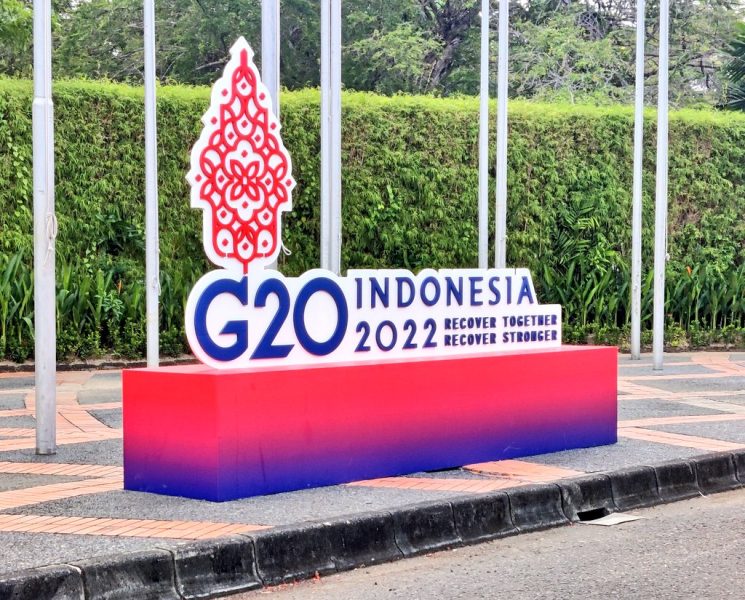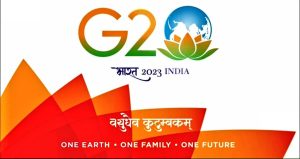
What Bali G20 meet holds for India, other nations in post-COVID world
Theme, focus areas, leaders in attendance, contentious issues, and India’s upcoming G20 presidency— here is all you need to know about the key meeting of the G20 and beyond

The 17th G20 Heads of State and Government Summit, to be held in Bali, Indonesia, on November 15-16, has raised all-round expectations. Coming as it does when the world is recovering from the COVID pandemic, and each country is in a hurry to get its economy back on its feet, the summit has various things to offer various governments.
For India, it’s additionally relevant because the country will be hosting next year’s summit, and what it accomplishes in Bali this week may set the tone for its presidency in 2023. Prime Minister Narendra Modi will be in Indonesia from November 14 to 16, the Ministry of External Affairs (MEA) has announced. He is expected to hold bilateral meetings with some of his counterparts on the sidelines of the summit and also interact with the Indian community in Bali.
Also read: India to focus on MDBs, climate finance during G20 presidency, says Sitharaman
“At the closing session of the Summit, Indonesian President Joko Widodo will symbolically hand over the G-20 presidency to Prime Minister Shri Narendra Modi,” the MEA statement read. India will formally assume the G20 presidency on December 1.
About G20 summit 2022
With the theme of “Recover Together, Recover Stronger,” the G20 summit this week will focus on establishing global governance. It has chosen three priority areas for discussions: global health architecture, sustainable energy transition, and digital transformation.
According to this year’s host Indonesia, it is important for the world to recover as it has been facing challenges in all sectors, from health to education to international trade, in the aftermath of the global Covid-19 pandemic. Shortly after that came the war in Ukraine, coupled with increasing inflation and climate change.
Global health architecture: One of the main agendas of the summit is to boost global health resilience and help the global healthcare system become more inclusive, equitable, and responsive to crises. Among other things, pandemic preparedness and advancing post-COVID infrastructure will be discussed at the summit.
Digital transformation: The summit will focus on harnessing the benefits of rapid digitalization of the global economy and secure common prosperity. The key discussion areas will include bringing MSMEs into the digital ecosystem, digital entrepreneurship, and the role of women in the workplace.
Watch: India to work with G20 members over debt, food and energy security issues – S. Jaishankar in UN
Sustainable energy transition: The third agenda is to promote the transition of the world towards cleaner and greener energy sources. The summit plans to urge the G20 members to provide a platform for investment for energy sustainability to run optimally. To be discussed are topics like energy accessibility, smart and clean energy technology, and energy financing.
Elon Musk, and others at the event
Apart from Modi, the world leaders who are attending the summit this year include US President Joe Biden, China’s Xi Jinping, Russian Foreign Minister Sergei Lavrov, Ukraine President Volodymyr Zelenskiy (virtually), British Prime Minister Rishi Sunak, and Canadian Prime Minister Justin Trudeau, to name just a few.
Also read: Amritsar prepares ‘golden’ welcome for G20 summit in March
Incidentally, billionaire Elon Musk will join the G20 summit virtually, an official from the Indonesian Chamber of Commerce told CNBC Indonesia on Saturday. Musk is due to speak at a business event related to the summit.
The Russia factor
Russian President Vladimir Putin will not attend the G20 summit because of widespread opposition to his actions in Ukraine. For instance, during the Conservative leadership contest, Sunak had said he would not attend the summit if Putin were present.
Even though Foreign Minister Sergei Lavrov will represent the country, world leaders have reportedly decided to skip the official “family photo” at the summit because of discomfort due to Russia’s presence. The world leaders usually stand together for an opening photograph at the start of the event.
Also read: Oman, UAE to be guest countries at next year’s G20 summit in India
However, the Russia-Ukraine conflict is also expected to dominate the discussions at the summit. Though Widodo remained neutral by inviting Russia to the summit, he also had to invite Zelensky as a compromise to get the support of the western countries. Ukraine is not part of the G20. Indonesia has invited Zelenskiy to attend the summit as an observer.
On the sidelines
Biden is scheduled to meet Xi on Monday to discuss a range of contentious issues, including Taiwan, human rights, the Ukraine conflict, and North Korea’s nuclear programme. Sunak is also scheduled to meet Biden to discuss bilateral cooperation, including the AUKUS security pact to counter China’s influence in the Indo-Pacific region.
India’s upcoming presidency

PM Modi has already unveiled India’s logo, theme, and website for its presidency of the G20. The logo has been created with the four colours of India’s national flag (saffron, white, green, and blue), comprising the Earth sitting atop a lotus.
The seven petals in the logo signify the seven seas and the coming together of seven continents at G20 India 2023. The Earth reflects India’s pro-planet approach to life. It also represents the theme of G20 India 2023, “Vasudhaiva Kutumbakam: One Earth, One Family, One Future.”
Significance of the G20
G20 is the leading forum for international economic cooperation. The members represent around 85 per cent of the global GDP, over 75 per cent of global trade, and about two-thirds of the world population.
Also read: With eye on 2024, Modi govt will cash in on G20, SCO events in India
The G20 comprises Argentina, Australia, Brazil, Canada, China, France, Germany, India, Indonesia, Italy, Japan, the Republic of Korea, Mexico, Russia, Saudi Arabia, South Africa, Turkey, the UK, the US, and the European Union (EU).

